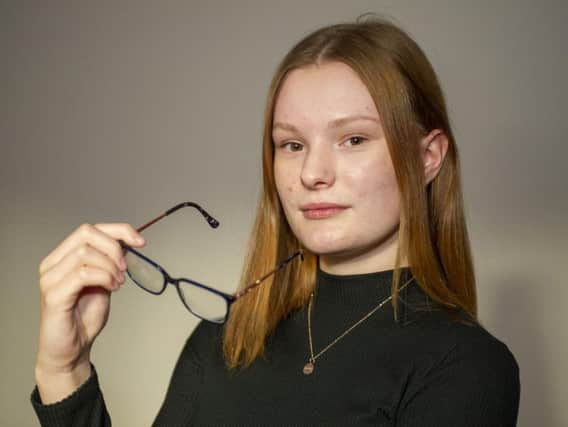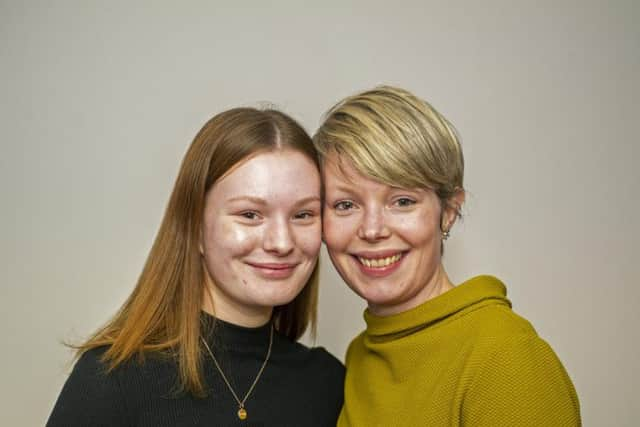'My mum was shocked' - Yorkshire teen describes hidden eye condition that could have been prevented if caught at an early age


She is one of about 4 per cent of people with the condition, which is more commonly known as a lazy eye, where one eye takes on the work of two.
Advertisement
Hide AdAdvertisement
Hide AdHowever, had her condition been diagnosed as a young child, she might have been able to avoid glasses entirely.


The 16-year-old from Holmfirth, Kirklees, said her sight problem was not picked up as a young child as she did not complain about her sight, despite having very blurred vision in one eye.
“There’s a history of poor eyesight in my family so I think my mum was shocked that she hadn’t thought to take me for an eye test. But my eyes look perfectly fine, you can’t see by looking.
“The opticians explained that if they’d caught it earlier they would have put a patch over my stronger eye but my eyes were too developed for that to work. There’s nothing actually wrong with my eye, it’s just my brain deciding to use one and not the other.
Advertisement
Hide AdAdvertisement
Hide AdAlso in news: 'The North-South divide caused Brexit, now leaders must come to the North to win December's General Election'
“When they covered my good eye, everything was a complete blur. I could read the first line on the eye test.
“The biggest change when I was little was having to wear glasses, which I had to wear constantly. If I hadn’t had the glasses, my eyes would have got tired and the sight in the eye that was good would have got worse. Then my vision would have been compromised completely.”
Ms Thompson is not alone. Research carried out this year with 600 children in Huddersfield found one in five children have undiagnosed eyesight problems.
Advertisement
Hide AdAdvertisement
Hide AdAlso in news: Simon Annand has photographed actors including Dame Judi Dench, Dame Helen Mirren and Daniel Craig - this is how you can see his work in Huddersfield
While eye tests and glasses are available free on the NHS for under 16s, many parents do not take their children to an optician unless the child reports having trouble reading or seeing the whiteboard at school.
In extreme cases, it can impact certain career choices in later life including working in the police, joining the army or becoming a pilot.